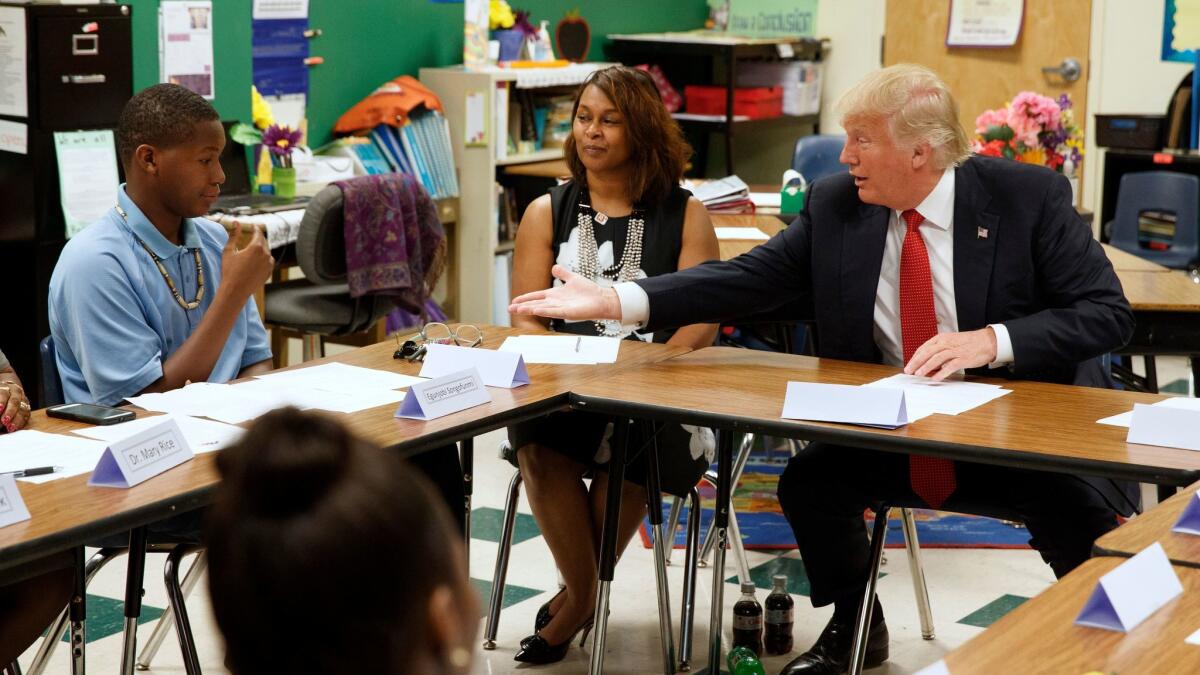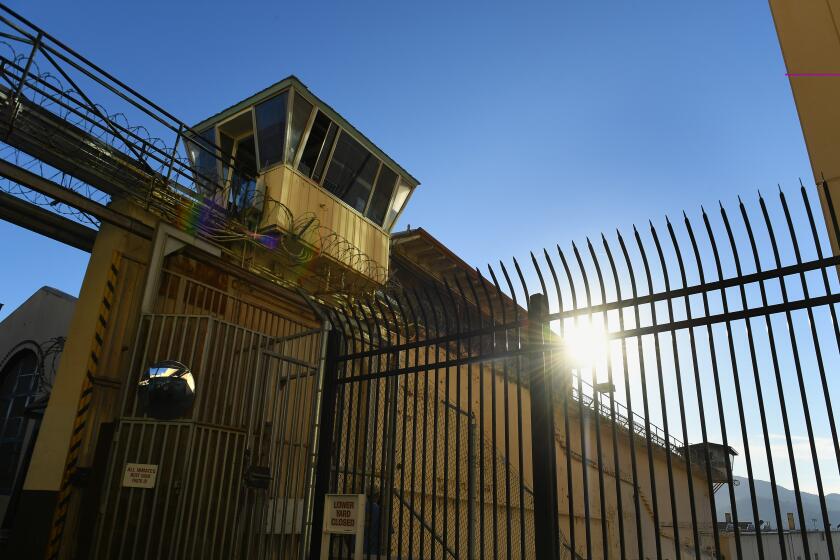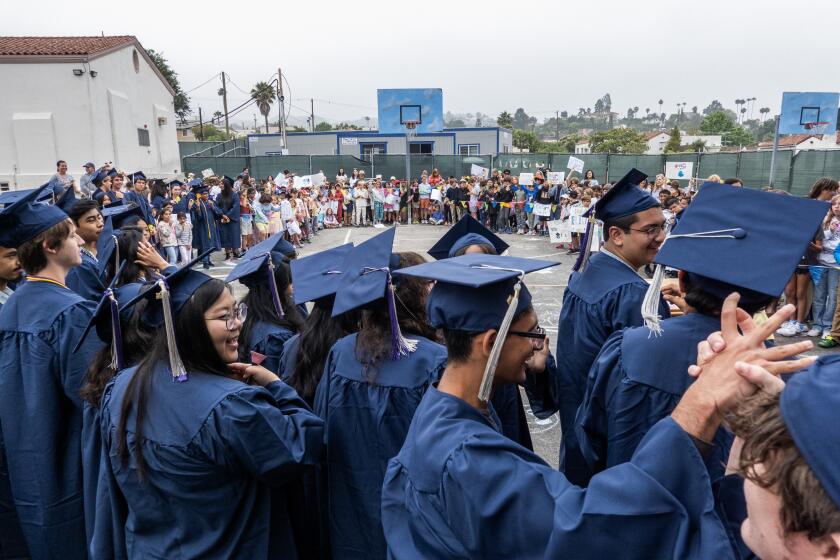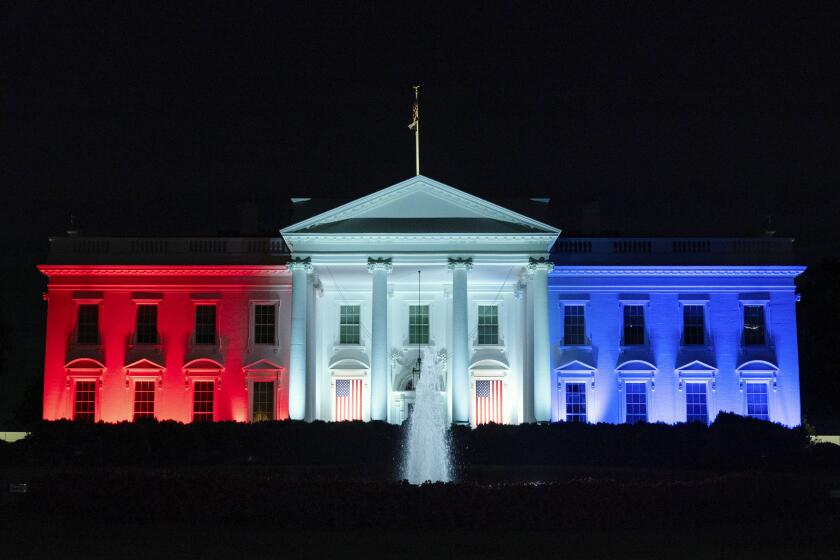Editorial: Why Donald Trump’s school voucher plan can’t be as big — or bad — as promised

Public education never made it to the forefront of this year’s presidential debate. Curriculum standards and school vouchers simply can’t compete with trade wars, immigrant bashing and recordings of lecherous conversations.
Now that President-elect Donald Trump is interviewing potential secretaries of Education, however, it’s time to try to parse his views on K-12 schools — which isn’t an easy task. At times he has spoken vehemently against federal control, and at other moments he has seemed to embrace it. He talks about drastically reducing the role of the U.S. Department of Education or even eliminating it while also touting plans for a $20-billion effort to promote school vouchers, which provide families public dollars to spend on private school tuition. That’s almost as much as the nation spends on Title I funding for low-income students and Title III funding for special-education students combined.
Trump has pledged to get rid of the Common Core curriculum standards, but those were adopted by most states, albeit under pressure from the Obama administration. Trump’s proposal sounds like a threat to interfere with those decisions, contrary to his promise of a reduced federal role and to a new law that specifically prohibits the U.S. Department of Education from meddling in curriculum matters.
Similarly, if Trump tries to spread the use of vouchers through a carrot-and-stick approach — for example, offering extra money to states that agree to use vouchers while threatening those that decline with a loss of funding — he is basically echoing President Obama’s methods. Obama used waivers and funding to prod states toward Common Core and other reforms, a form of friendly coercion that proved widely unpopular.
Even states that wanted to go along with Trump would face obstacles, though. California and 36 other states have constitutional provisions, called Blaine amendments, that ban the expenditure of public money on religiously affiliated schools. Close to 80% of private school students attend religious schools, which would be ineligible for vouchers in Blaine amendment states.
School vouchers are distasteful on many fronts, not just because they might fund religious institutions with taxpayer dollars. This country has long cherished the ideal of a robust public school system for all. Unlike charter schools, private schools get to admit only those applicants they wish and expel them for whatever reason they want. That’s almost certain to give the advantage to more affluent families and to the students who least need extra academic help.
Just last year, Congress passed a new school accountability law. Private schools would somehow need to fit into that law, testing students, reporting the scores and being held accountable for the results.
In the end, like so many broad promises Trump made, he will probably need to shrink his goals for public schools to a fraction of what he’d intended, or reshape them beyond recognition.
Follow the Opinion section on Twitter @latimesopinion and Facebook
To read the article in Spanish, click here
MORE FROM OPINION
Why death row doesn’t work and how Charles Manson changed the death penalty
The big-picture problem with Steve Bannon
A world inching towards climate change catastrophe can’t afford Trump’s proposed energy policies
More to Read
A cure for the common opinion
Get thought-provoking perspectives with our weekly newsletter.
You may occasionally receive promotional content from the Los Angeles Times.










